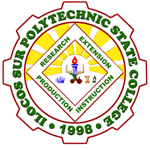This course is intended for students to appreciate the value of databases and enable them with the adequate skills needed to plan, analyze and design databases. With formal tools and foundation concepts, students are equipped with a better understanding on how to build and eventually use databases for various purposes. The course covers the basic theories behind databases, data models and databases analysis and design. The course will tackle different data models, but will concentrate mainly on relational, being the most commonly used today. The course introduces learners to concept on conceptual design of databases using the concepts of the Entity-Relationship (ER) model and normalization relational model, relational database design and database query languages.
This course covers the basics of computer organization with emphasis on the lower-level abstraction of a computer system including digital logic, instruction set and assembly language programming. Concepts of assembly language and the machine representation of instruction and data of a modern digital computer are likewise included. Students will have the opportunity to study machine organization, addressing, stack operation, and interrupt driven I/O. This will include computer architecture at the register level and microoperation components of instruction. Moreover, it focuses on basic programming practices using assembly languages to provide practical application of concepts.
Applications Development and Emerging Technologies is a course that explores the latest advancements in software development and emerging technologies. It covers various topics related to application development, including programming languages, software engineering methodologies, mobile app development, web development, and cloud computing. Students learn about the principles and practices of developing scalable, efficient, and user-friendly applications using cutting-edge technologies. The course also introduces emerging technologies such as artificial intelligence, blockchain, Internet of Things (IoT), and augmented reality, providing insights into their potential applications and impact on the industry. By the end of the course, students gain a solid understanding of modern application development techniques and are prepared to leverage emerging technologies to create innovative and impactful solutions in the digital landscape.
